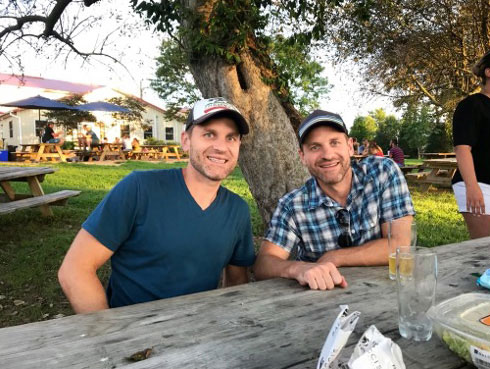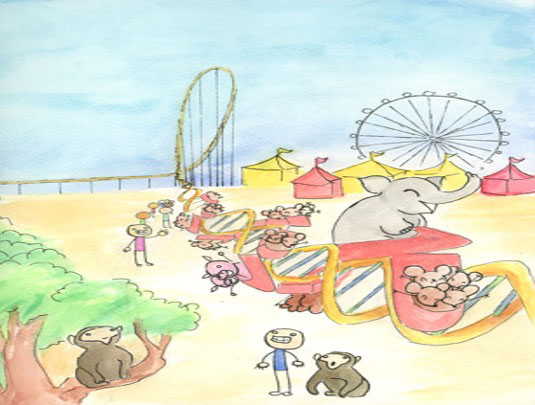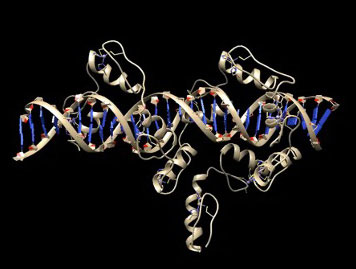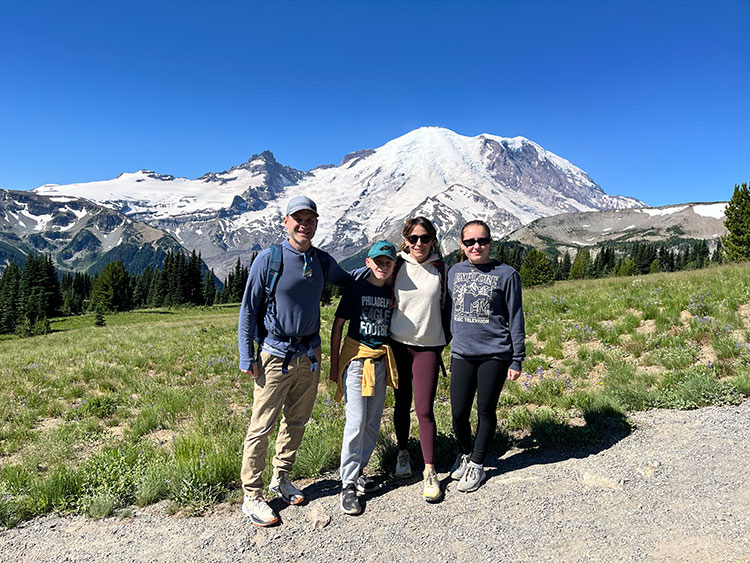Enhancing Scientific Impact Through Mentoring
What sparked your interest in science?

Credit: Todd Macfarlan, Ph.D.
As a child, I had two major fascinations: evolution and development. I loved reading books about evolution and learning how distinct but related species like humans and chimpanzees evolved from a common ancestor.
My interest in development largely stems from the fact that I'm an identical twin. I share a complete genome with another human being. But he's left-handed and I'm right-handed. We live separate lives and have our own interests. Thinking about these kinds of things made me interested in how genes are important, yet don't tell the whole story.
How did your scientific focus develop over time?
After high school, I knew I wanted to study genetics and epigenetics—how information from the environment affects gene function. As an undergrad, I majored in molecular biology, which gave me a strong genetics background. For my doctoral studies at the University of Pennsylvania, I chose a lab focused on exploring the molecular mechanisms that regulate the epigenome. I gained a lot of experience in biochemistry. When I moved on to my postdoctoral fellowship, I wanted to broaden my research experience, so I joined a mouse genetics lab. I still use the experimental models I learned there.
What does your lab study now?

Credit: Don Hoang, Ph.D.
My lab studies epigenetics through the lens of evolution. We’re specifically interested in the effects of retroviruses—viruses like HIV that insert their genetic material into the host genome—on evolution. Retroviruses have been infecting mammals for millions of years, so there has been a constant barrage of different genetic sequences entering our genomes. In fact, about 8% of human genomic DNA is made up of the remains of ancient viral infections.
My lab explores the idea that these viral genes have played an important role in driving evolutionary adaptations. Some of the best evidence of this is research showing that retrovirus-derived proteins are essential for mammalian development. For example, deleting a certain retrovirus-derived protein called syncytin (a retroviral envelope protein) in mice causes defects in the placenta.

Credit: Todd Macfarlan, Ph.D.
These viral genetic remnants can also drive the expansion of mammalian antiviral defense mechanisms. My lab focuses on one class of defense proteins called KRAB-zinc finger proteins. There are hundreds of these proteins in mammals, and they are quite different across species. We’ve shown how KRAB-zinc finger proteins can recognize and silence retroviral genes. But one of our most exciting findings illustrates the essential role of a KRAB-zinc finger protein in fetal and placental development in mice.
How do you find work-life balance?

Credit: Todd Macfarlan, Ph.D.
Carving out time for myself to spend with family is important to me, and I tell my fellows the same thing. I want people to be excited about coming to the lab. To maintain that excitement, you also need to have a life outside of the lab.
I try to lead by example. I spend a fair amount of my time coaching kids at Potomac Soccer, and I play in a soccer league in DC once a week. I enjoy it, and it also gives me a chance to connect with my children. Right now, I’m coaching my son’s 13 and under team, and I enjoy watching my daughter play high school soccer.
Why is it meaningful for you to help train the next generation?
Whether it’s soccer or science, I feel similarly: You can do a lot on your own, but if you mentor people successfully, you can multiply your impact.
At NICHD, I have a great group of postdoctoral fellows. I seek to support and guide them in achieving their career goals—whether they want to lead their own research labs or go in a different direction. I want them to succeed, and I want them to feel that way about their staff in the future. I think that science is best approached collaboratively, not competitively.
What challenges do you face as a mentor?
The biggest challenge is when students’ and fellows’ projects are not going well. Every investigator has projects that fail for one reason or another. How can I help keep the fellows upbeat and on track—or help them decide to close the door and move onto a new project?
I have learned the importance of having backup plans and backup projects, so that there are always multiple things cooking at the same time. Unexpected events happen—like the COVID-19 pandemic, which forced us to shut down our mouse colony for two years.
And science itself is unpredictable. It’s not always the smartest people or the hardest working people who have success. Sometimes, it’s the lucky ones. It can be very difficult for the people who aren't enjoying success when they're working just as hard as those around them. Certainly, you have to work hard to be a successful scientist, but you also have to learn to focus your energy and attention in the right place.
What advice do you have for early-career scientists?
First, it is very important that your research is addressing the most important problems in biology. Second, it is very important to get to know people in your field. Other scientists are going to read your papers, review your manuscripts, and invite you to give seminars. But don't wait for invitations to come your way. You must be proactive about networking. For example, if you’re impressed by a paper, send the authors a note telling them why you like their work. People often feel intimidated to do this, but you will almost always get a response—everyone’s excited to hear that someone liked their paper. And that might bring their attention to you and your work.
Return to Get to Know NICHD.
 BACK TO TOP
BACK TO TOP